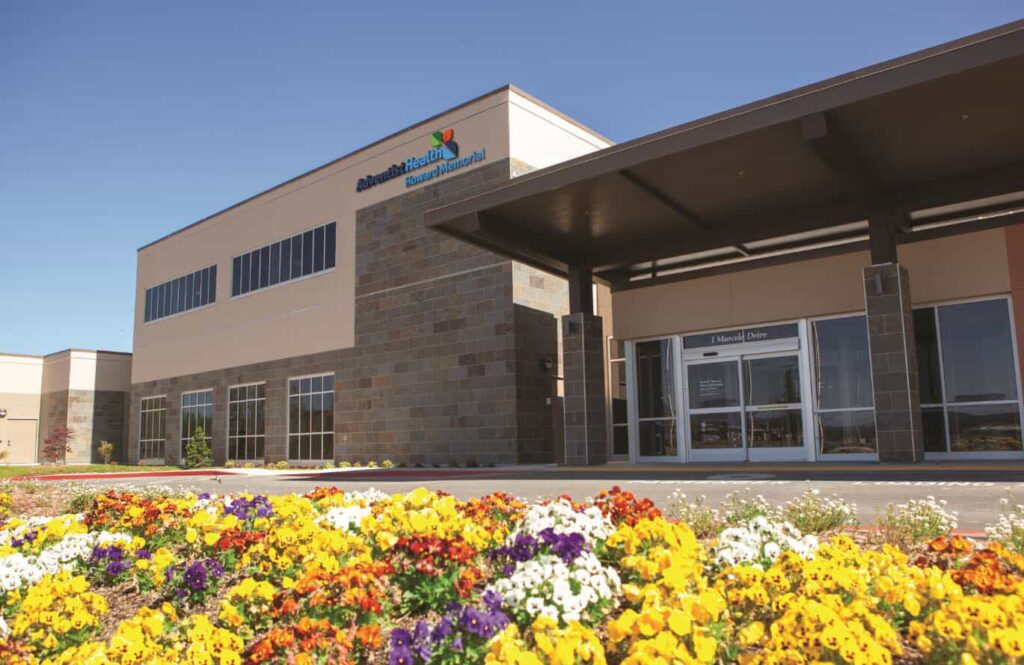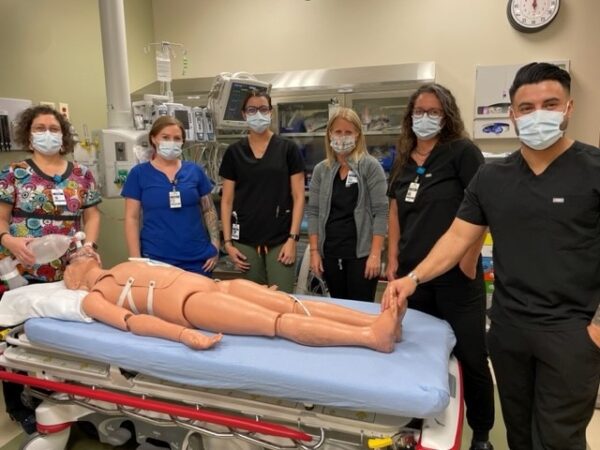In a world with 7.8 billion people, though we are each made of the same materials, we are all unique in many ways. One thing that sets us apart are the things we can do to help each other. In the words of American author Jim Rohn, “One person caring about another represents life’s greatest value.” It is in these values we serve our community, and care for those in need as we carry out our mission to live God’s love by inspiring health, wholeness, and hope.
As we at Adventist Health Howard Memorial care for our loved ones, friends, neighbors, and those connected to so many in a small rural area, our work is vital to ensuring we can provide high-quality care close to home. With the amazing generosity of the Frank R. Howard Foundation, we are increasingly grateful for their contributions to our team as we work to keep our promise to continue providing the patient-centered, excellent care our community has come to know. Through the foundation’s efforts we have been able to procure an Ares Emergency Care Manikin to assist in our training to provide the best possible care.
A New, State-of-the-art Training Tool
Ares, built to withstand the rigors of emergency care team training, is an emergency care simulator. Purchased from CAE, a company built on high technology, bringing the digital and physical worlds closer together to create a safer world, Ares combines the streamlined simplicity of an emergency care manikin with an unrivaled patient physiology, offering an entirely new training experience for nurses and front-line clinical staff.
As a rural, critical-access hospital located in Willits, California, United States, thanks to the amazing and generous gift, we can provide high-quality training to our nurses, respiratory care team, medical assistants, and others within our hospital and Redwood Medical Clinic.
When Arnie Mello, executive director of the Frank R. Howard Foundation, was approached about the Ares Manikin, we were very excited to show it to him and he was happy to spend time with us to learn more.
“Before we purchased this device, we borrowed a model to evaluate. Arnie spent hours with us looking through the model, watching us work with it, seeing how it functions, and he even reviewed the competency process and how we would use it to validate training for our team,” Holly Bennett, infection prevention coordinator, said. Bennett has been assisting over the past year in nursing training and competency. “He not only said yes to the purchase; he asked us to put together a list of everything we need for it, which they would help purchase as well.”

Multiple Capabilities
Developed to provide advanced cardiac life support (ACLS) and emergency care management training, our team is in awe of the amazing things the Ares Manikin can do.
“It’s incredibly sophisticated,” Bennett said. “You can come in, turn him on, choose a program, say the ACLS module that the foundation bought us, and it will run the entire scenario for a group in training. So instead of it being instructor dependent, it will be a quality control now because the person or group being tested, everything they do, they take a pulse, it records it — it is that sensitive. Even simple things like, its eyes are LED so you can change their colors, you can change pupil size, and you can even take a flashlight and it will respond to the light. It is the next level of training apparatus and evaluation for our team, and we’re excited to have it.”
Not only does the Ares Manikin have a sensitivity and analysis that gives our team the ability to train, measure, and improve, but it also holds existing, high-level detail that our team can use for understanding and visuals.
“It has this headset you put on which is virtual, and you can see a pulmonary embolism [blood clot] going up the vein, through the pulmonary artery, and then into the lungs. You can see the effects on the lung tissue and the heart. It is incredible. Then the nurses get to see firsthand and learn what this looks like and take this knowledge back to the patients, and they can explain what is happening to them. Not only this, but it has built-in programs that can run cases such as a heart attack, stroke, and you can even study the heart further and review its inner workings by pulling a model of the heart up, turn it 360 degrees, move inside of it, and see what valves are doing and its functionality.”
Ares is sensitive to touch, but also creates a life-like model of a human lying on a gurney, and can be intubated, be provided bag-valve-mask ventilation, spontaneously breathes with bilateral and unilateral chest rise and fall, upper airway sounds, has 4-lead ECG monitors with real equipment, blood pressure measurement, pulse with variable strength, CPR compressions that generates pulse, and can provide a way to train on working to control the insertion of sterile devices by putting tubes in its nose, mouth, and male and female genitalia.
A Big Step Forward
This level of education many times is applied in greater measures to institutions bringing forth the next generation of nurses and providers.
“We have not had this level of education applied to nursing technology before. It is something that most places do not have. Nursing schools and teaching facilities are the only places that tend to have this advanced technology,” Bennett said. And for this and so much more, we are absolutely elated to have this technology on our campus helping our clinical staff learn, grow, and build their skills in an ever-evolving patient setting.
Since its purchase, we’re happy to say it has been doing a lot of ICU training for our team, and the emergency department has trained extensively on it for emergency care. Our nursing staff has also utilized Ares for skills fairs, which are held on a yearly basis for continued education. Additionally, our respiratory care team have used it to practice intubation, and it has made an appearance in our Redwood Medical Clinic helping medical assistants and others to practice taking vitals for patients.
A robust training tool with layers upon layers of options to educate our team, we could not be more emphatically grateful to have it, as we say thank you to Arnie and the Frank R. Howard Foundation for their generous contribution to advance our training for our clinical staff at our hospital and clinic.
The original version of this release was posted by Adventist Health News.



